Yinhao [silver-buds tea] represents the ladyboy end of the pu'ercha spectrum, and is typically something I avoid because it doesn't age well. It is often soft and sweet when young, before dying away due to its lack of real leaves.
The Jakub has kindly sent me a tuocha made by the Yongpinhao company of Yiwu town which is apparently the yinhao that it's OK to like.
Yunnan Sourcing sells this little 100g fellow for $11, which isn't a huge amount for a tea that is now nine years old. The leaves seemingly come from Yiwu and Badashan regions; as you can see from the above, there is much more than yinhao in the blend, for which we should be truly thankful, amen.
Lei and I headed out into the garden to enjoy this one. The water isn't as good as drinking indoors (coming from a hot thermos flask), but the atmosphere really brings out the best in the tea. I probably wouldn't drink my most demanding pu'ercha out here, due to the water, but it's entirely fantastic to drink more sociable teas al fresco.
This little tuocha is actually rather good. You wouldn't expect so, given Yongpinhao's less-than-excellent track record, but this tea packs a serious set of sensations into its finish: my mouth was simultaneously numbed and cooled in a pronounced manner. Combined with a fairly penetrating sweetness, and the sweet-straw of some decent aging, and it was very enjoyable. Add the setting of the garden, and it all worked out rather well.
Just for fun, I brought my gadgetry out with me for a quick scribble. Thankfully, there is no wireless signal out this far from the house: one must disconnect in order to connect (with others). However, I couldn't resist a rapid sketch.
Readers to whom I'm connected via Facebook will probably already have seen many of this series of scribbles.
(I don't actually like Facebook, but it is the only social network to which absolutely everyone I like is connected. Everywhere else seems like a wasteland by comparison to Facebook's bustling metropolis.)
I've found that drinking outside leads me to consider teas that I wouldn't otherwise get the time to drink. This includes wulong, hongcha, dancong, and so on. With thanks to Tom, a teachum from near my place of birth in East Anglia, we dipped into a Taiwanese wulong, from Lishan.
The leaves are tiny and curled, rather like a Chunmei lucha, with the occasional rusty tip. Perhaps unsurprisingly, they have the fruity scent of wulong leaves that have seen maximal oxidation.
This is a very accomplished hongcha, being big and chunky in the mouth, while managing to be smooth and well-produced at the same time. I dread to think how much Jing-of-London charge for this little number, and refuse to look. However, it is very nice, and is probably worth paying at least a decent price. That said, hongcha is hongcha, and it doesn't march on for too long. While it lasts, it is floral, malty, rich, and (who'd have thought?) rather like Lishan wulong.
Many thanks both to The Jakub and to Tom for a great session.

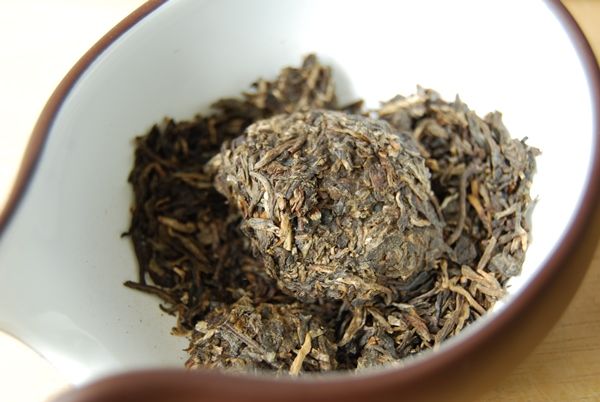
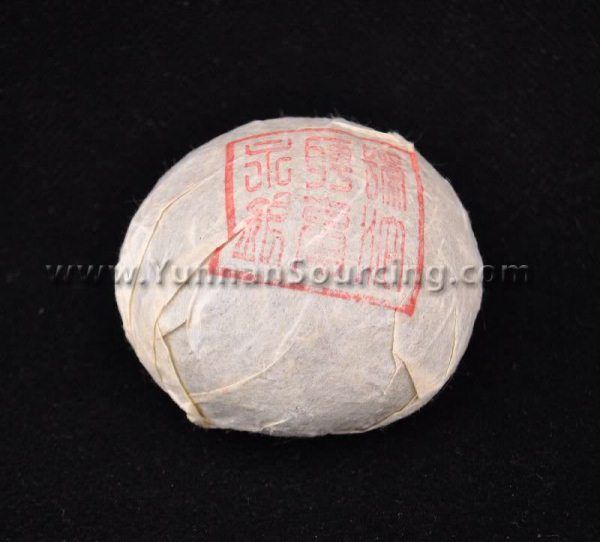
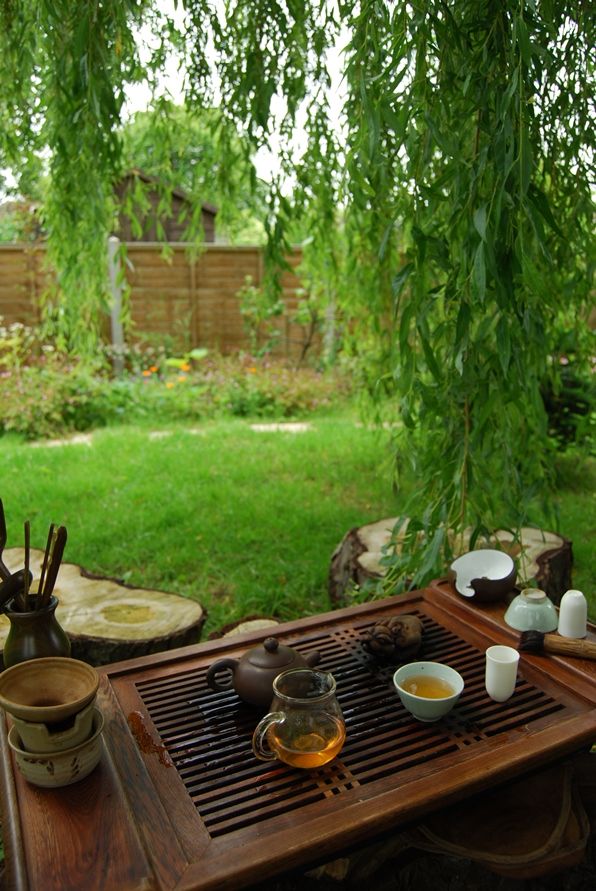
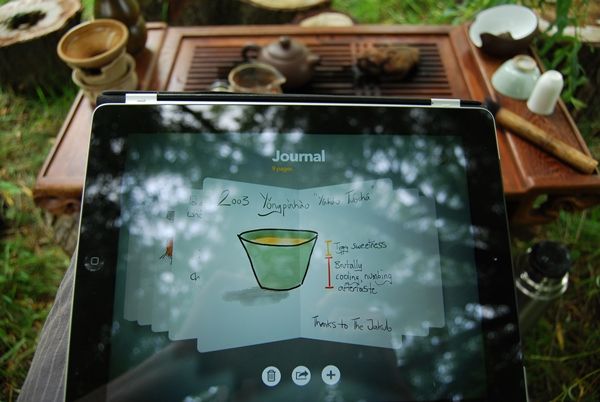
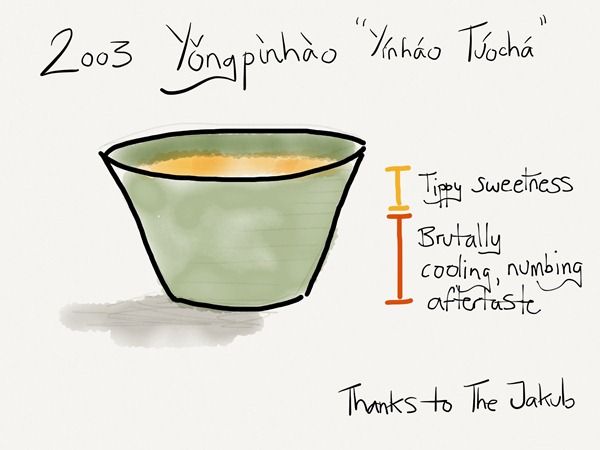
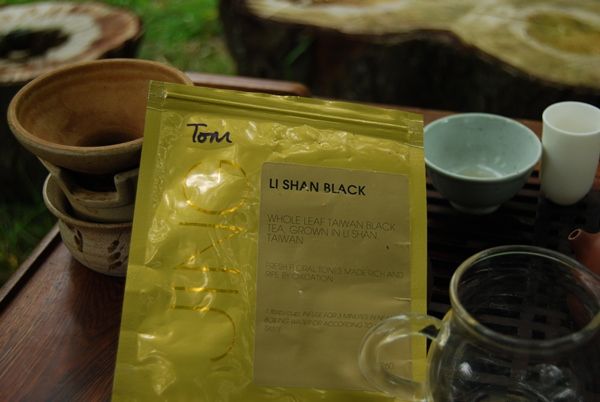
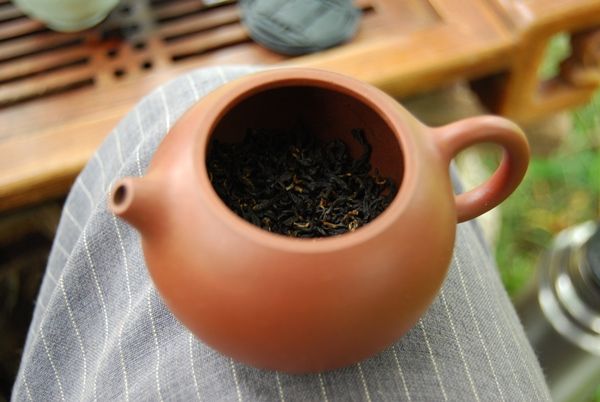
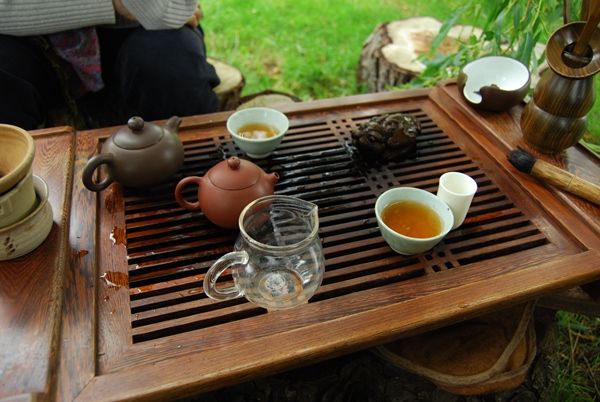
Yeah I wouldn't look on the Jing site if I were you. Lets just say that at that price per gram you could buy some pretty nice tea from EoT!
ReplyDeleteI did not know you were on FB :)
Best Wishes,
Jack
Why do you also call the second tea "wulong"? Wasn't it black.
ReplyDeleteDear Jack,
ReplyDeleteI try to avoid the Jing-of-London website's stratospheric prices, but I suspect that their primary market is not me. :)
Dear Hektor,
I'll give you one guess as to which kind of leaves are grown on Lishan!
Toodlepip,
Hobbes
Funny that drinking outside has the same effect on me (trying other kinds of tea than puerh only). Sometimes, I find it difficult to concentrate on all the subtleties of puerh when drinking outside: wind, birds, insects and all that - I enjoy all of these, but they are a distraction.
ReplyDeleteGlad you enjoyed the Yinhao. Its mouthfeel (and lack of strong taste) makes it a good candidate for blending with teas strong in taste and weak in feeling.
Jakub